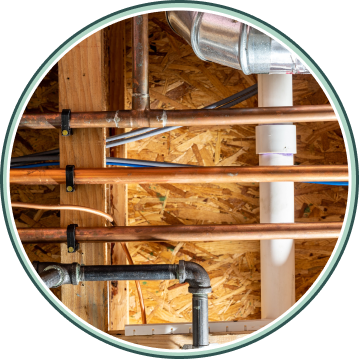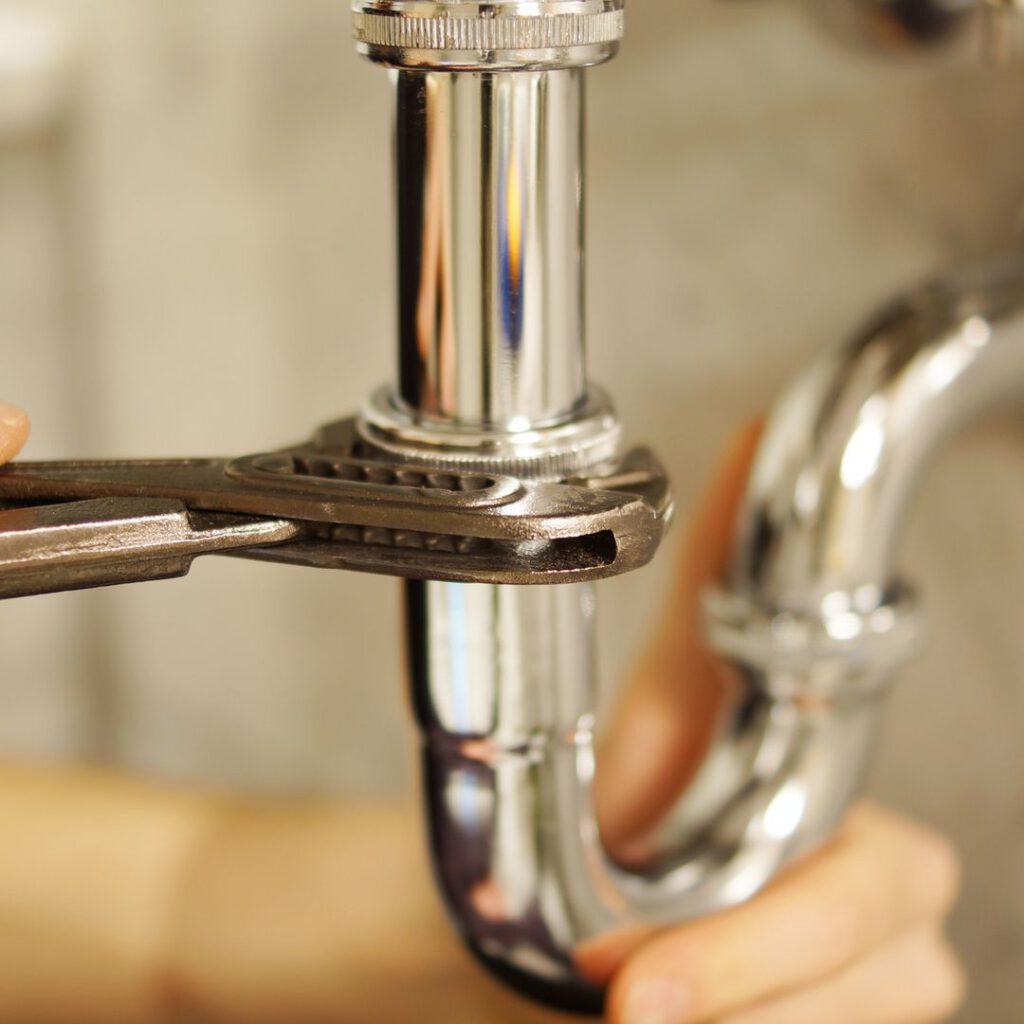Choosing the best repipe company in Houston for complete piping needs
Why Investing in Repiping Services Is Essential for Your Home's Plumbing Health and wellness
Repiping services play a vital duty in preserving a home's pipes wellness. With time, pipelines can wear away, leakage, or become blocked, leading to potential risks and inadequacies. Property owners often ignore the indicators of deteriorating plumbing, which can result in significant damage. Comprehending the requirement for repiping is vital. What elements should home owners take into consideration before making this investment? The answers may surprise you.
Comprehending the Value of Repiping
While several homeowners may ignore the significance of repiping, it plays a necessary role in keeping the overall health and wellness of a plumbing system. With time, pipes can corrode, create leakages, or come to be obstructed with natural resource, bring about reduced water high quality and circulation pressure. Repiping addresses these concerns by changing old, broken pipes with new, long lasting products, making sure a reliable water supply and reducing the danger of costly repairs associated with leakages and water damage. In addition, modern-day piping materials are frequently more environmentally pleasant and reliable, contributing to lower energy prices and enhanced water conservation. Performing a repiping project can enhance a home's resale worth, making it a prudent financial investment for home owners. Eventually, identifying the value of repiping allows home owners to take positive steps in protecting their plumbing systems and making certain a risk-free, useful living atmosphere for their families.
Common Indicators That Suggest the Demand for Repiping
House owners should be cautious for particular signs that show the need for repiping, as ignoring these problems can lead to a lot more severe plumbing troubles. One common indicator is the presence of regular leakages, which can suggest aging or degrading pipelines. Furthermore, an obvious drop in water pressure might suggest clogs or rust within the plumbing system. Home owners might likewise notice stained or corroded water, indicating pipeline destruction. Unusual water costs that are noticeably higher than typical can also mean leakages concealed within the walls. The development of mold or mildew in locations near plumbing components can suggest wetness issues stemming from damaged pipes. Finally, if the home has old galvanized piping, it may be time to think of repiping, as this material is prone to rust and deterioration. Identifying these indicators early can aid maintain a healthy and balanced plumbing system.
The Dangers of Overlooking Plumbing Issues
Overlooking plumbing problems can result in significant water damages, which might endanger the structural honesty of a home. Furthermore, unsolved leakages can develop an environment conducive to mold development, posing major carcinogen to passengers. Dealing with plumbing issues immediately is vital to safeguard both building and wellness.
Water Damage Concerns
When plumbing concerns go unaddressed, the danger of water damages escalates considerably. Leakages, leaks, and fractures in pipelines can cause considerable water intrusion, endangering the architectural stability of a home. In time, also small leaks can cause rot, mold and mildew growth, and damages to walls and floor covering, causing expensive repair work. Water damages can likewise influence electrical systems, creating unsafe conditions. Property owners commonly undervalue the cumulative influence of little leakages, which can result in extensive damages if not without delay attended to. Ignoring plumbing issues not only raises the possibility of prompt damage but can additionally diminish building value and present long-lasting financial problems. As an outcome, timely repiping services are important to protect against water damage and maintain a healthy and balanced home environment.
Health Hazards Boost
Unsolved plumbing issues can cause considerable carcinogen within a home. Polluted water from corroded pipes can lead and present harmful microorganisms to serious health problems. Mold and mildew development, usually an outcome of leaks and excess moisture, positions breathing threats and can cause allergies. Additionally, stagnant water can draw in insects such as rats and insects, which carry diseases that even more threaten family members wellness. Overlooking these pipes troubles not just endangers the safety and security of homeowners yet can additionally reduce residential or commercial property worth. Subsequently, addressing pipes problems through repiping services is important. Prompt treatment not only safeguards wellness but additionally assures a risk-free living environment, preventing much more comprehensive damage and pricey repair services down the line.
Different Kinds Of Piping Products
Piping products are a necessary element in plumbing systems, affecting sturdiness, performance, and overall efficiency. Different options are offered, each with special buildings and applications. Copper piping is understood for its longevity and resistance to rust, making it a preferred option for both cold and hot water lines. PVC (polyvinyl chloride) is lightweight, cost-effective, and immune to chemical damage, largely utilized for drainpipe and vent systems. PEX (cross-linked polyethylene) has gotten popularity because of its flexibility and convenience of installment, permitting less joints and possible leak factors. Galvanized steel, though as soon as typical, is much less beneficial today as a result of its susceptibility to corrosion and reduced water circulation over time. Each material offers distinct advantages and disadvantages, making it crucial for homeowners to seek advice from pipes professionals to figure out the most suitable alternative for their specific requirements and conditions. Selecting the appropriate piping material can significantly influence the effectiveness and safety and security of a plumbing system.
The Repiping Process: What to Anticipate
The repiping procedure starts with a thorough evaluation of the existing pipelines to recognize issues and identify the very best course of action. Following this examination, home owners will certainly require to choose ideal replacement materials that suit their plumbing needs. Ultimately, a review of the setup procedure will offer insights into what to expect during this significant home improvement.
Analysis of Existing Pipes
An exact analysis of existing pipelines is crucial for making sure the lasting health and wellness of a pipes system. This assessment includes checking the materials, age, and condition of the pipes, as well as recognizing any kind of signs of corrosion, leaks, or clogs - Repipe Specialists. Specialist plumbing professionals usually make use of sophisticated techniques such as video clip assessments to acquire a clear view of the pipeline's inside without invasive treatments. By determining problem areas early, property owners can prevent more damage and pricey fixings in the future. In addition, comprehending the existing state of the plumbing framework aids in making informed choices relating to necessary upgrades or repiping. On the whole, a complete assessment offers as the foundation for an effective repiping process, making certain that the new system fulfills the home's particular demands
Choosing Substitute Materials
After examining the existing pipelines, house owners face the crucial choice of selecting proper substitute materials for their pipes system. Common choices consist of copper, PVC, PEX, and CPVC, each with distinct advantages and disadvantages. Copper is understood for its durability and resistance to deterioration, making it a lasting option. PVC is cost-efficient and lightweight, ideal for drainpipe and vent lines. PEX provides flexibility and is resistant to range and chlorine, making installment easier in tight read what he said areas. CPVC is similar to PVC but can stand up to greater temperature levels. Property owners need to take into consideration factors such as budget, regional building ordinance, and the certain demands of their pipes system when making this clogged drain decision, ensuring optimal efficiency and durability for their home's plumbing facilities.
Setup Process Introduction
Repiping a home can be a substantial undertaking, but comprehending the setup process helps property owners get ready for what exists in advance. The procedure normally starts with a detailed assessment of the existing plumbing system to recognize trouble locations. Next, a comprehensive plan is formulated, outlining the necessary products and timelines. On the installment day, experts will certainly usually begin by turning off the supply of water and draining the existing pipelines. They after that get rid of the old piping, which might involve opening wall surfaces or ceilings for accessibility. Brand-new pipelines are set up, ensuring they fulfill present plumbing codes. The system is checked for leaks, and any type of openings are fixed. House owners can expect a efficient and tidy process, decreasing interruption to their lives.
Long-Term Benefits of Repiping Your Home
While lots of property owners might neglect the relevance of updating their pipes, the lasting benefits of repiping a home can significantly improve both its worth and performance. One of the main advantages is enhanced water quality. Older pipes might nurture contaminants and corrosion, while brand-new piping warranties secure and tidy water delivery. In addition, repiping can lead to enhanced water stress, making day-to-day tasks more efficient.

How to Choose the Right Pipes Service for Repiping
Just how can home owners guarantee they pick the most effective plumbing solution for repiping? Initially, they should look into regional plumbing business, concentrating on those that focus on repiping services. Reading on the internet testimonials and testimonies can provide insights into the high quality of solution offered. It's vital to check for proper licensing and insurance policy, making certain the selected business follow regional laws
Property owners need to likewise ask for in-depth quotes from several carriers to compare pricing and services provided. Involving directly with prospective plumbing technicians can help evaluate their expertise, communication skills, and desire to respond to inquiries. Furthermore, asking for recommendations from previous clients can verify a firm's reliability and craftsmanship.
Lastly, home owners need to consider the company's service warranty policies on materials and labor, as this can reflect their commitment to high quality. By adhering to these standards, house owners can make an educated option, safeguarding their plumbing wellness through effective repiping services.
Frequently Asked Concerns
The length of time Does a Common Repiping Task Take to Complete?
A common repiping project generally takes in between one to 5 days to complete, depending on the size of the home and intricacy of the plumbing system. Proper preparation and service provider expertise can influence overall duration considerably.
Will Repiping Rise My Home's Resale Value?
Repiping typically enhances a home's resale worth, as possible purchasers appreciate upgraded plumbing systems. This improvement reduces possible pipes issues, making the home more eye-catching and potentially validating a higher asking rate during sale negotiations.
Can I Keep in My Home During Repiping?
Throughout repiping, remaining in the home is commonly possible, yet it may rely on the extent of the job. Property owners should plan for short-term disturbances and talk to contractors for details plans and safety considerations.
What Is the Ordinary Expense of Repiping a Home?
The ordinary cost of repiping a home typically varies from $4,000 to $15,000, depending on aspects such as the dimension of your home, products made use of, and labor costs connected with the pipes work. - Houston Repiping Experts
Do I Need a License for Repiping Providers?
An authorization is usually needed for repiping solutions, as it guarantees compliance with regional building ordinance and guidelines. Homeowners must consult their regional authority or a licensed plumbing technician to determine particular permitting needs for their location.
